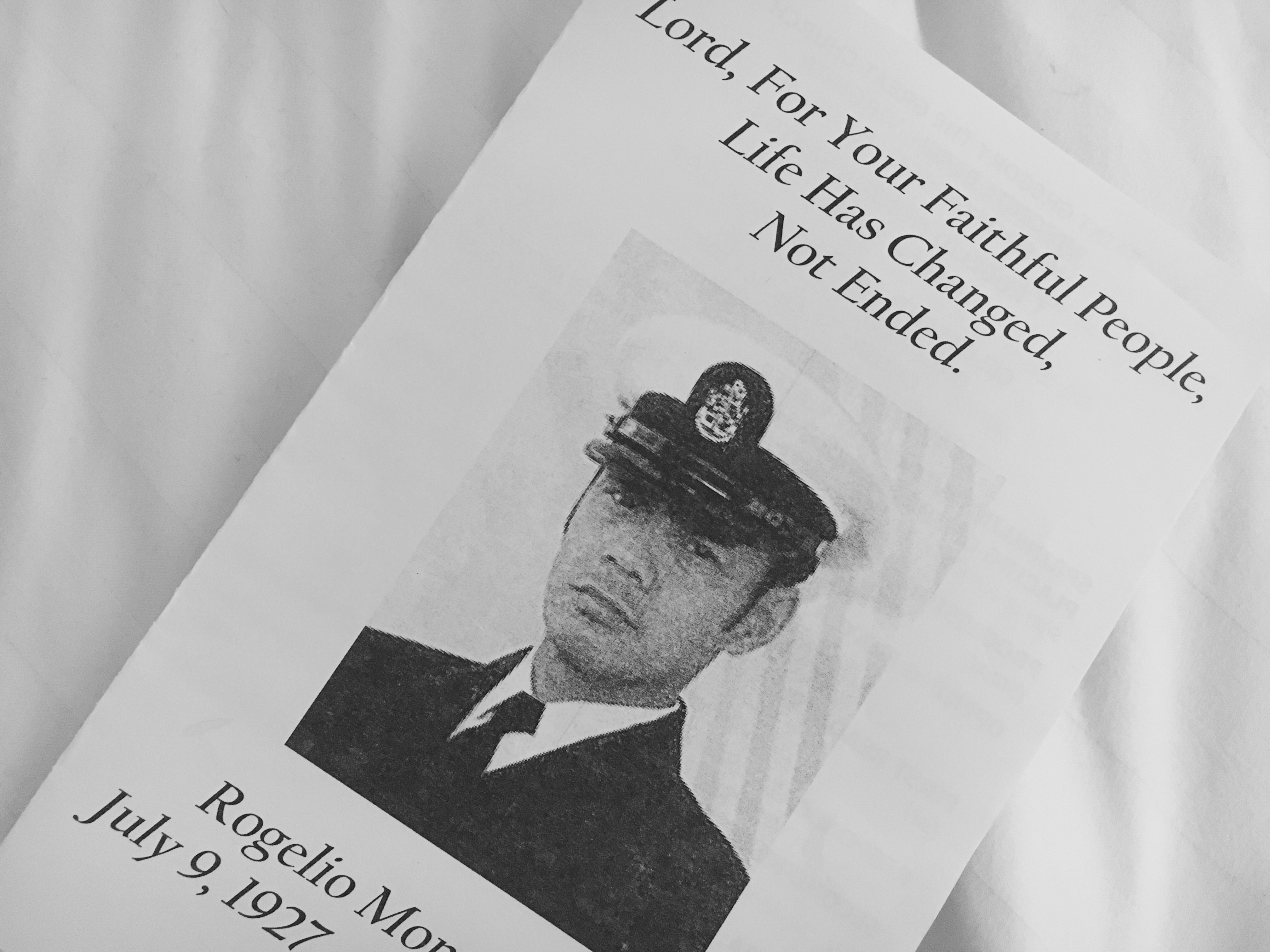In a chapel at a Catholic parish on a Friday, I knelt at my seat a few feet in front of the altar during adoration. I wanted to pray, but got distracted by a casket.
Through the chapel’s glass wall, I saw a set of pallbearers in dress blues carry it into the commons.
I looked away and tried to pray, again. But I couldn’t, because an inexplicable urge had overcome me—the urge to attend the funeral.
I shouldn’t, I though—I’m underdressed.
And why would I want to? I don’t even know whose it is. When I couldn’t shake the impulse, I texted my friend Deacon Joe.
“Are you allowed to attend a stranger’s funeral?”
Totally, he said.
So I did.
I swiped a program from the stack of them next to the guest book on a podium in the commons.
Then I picked a seat in the second to last pew and hoped that no one would ask how I knew Rogelio.
We sang while his family followed the casket down the aisle.
You shall cross the barren desert, but you shall not die of thirst. / You shall wander far in safety, though you do not know the way.
I didn’t know why I needed to be there until the second reading.
1 Corinthians 13:1-13—unusual for a funeral. The fourth verse starts the part that all of us know.
Love is patient. Love is kind. Love does not envy or boast. It is not arrogant or rude. It does not insist on its own way. It is not irritable or resentful. It does not rejoice at wrongdoing, but rejoices with the truth. Love bears all things, hopes all things, endures all things. Love never ends.
That’s how we’re designed to love, and I had always known it. But at the funeral, I realized: It’s also how we’re designed to be loved.
So in tears, I made my decision.
I’d never settle again.

